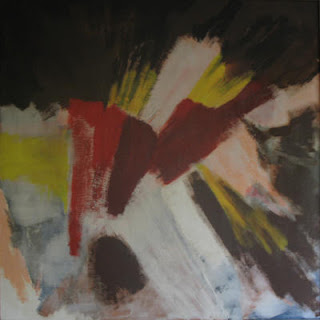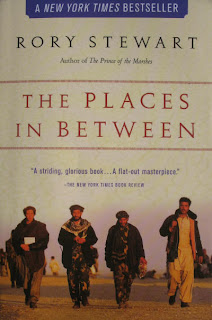
Joop (pronounced ‘Yoop’, rhymes with ‘soap’) is my uncle. He’s from the Netherlands. He’s opinionated, stubborn, smart, musical, and artistic. He has created lovely oil paintings—works with abstract shapes and colors that tell a story.
His classical music recording collection fills shelves and shelves with CDs and VHS tapes of public television performances. Joop is kind and generous with people he knows and stingy and critical with authoritative figures. That could be left-over from the war. He joined the Dutch underground resistance as a teenager and was captured by the Germans. He escaped, but he was recaptured. Somewhere along the way, they broke his back (literally).
Miraculously, he survived. He emigrated to America. He taught art and art history in high school and met and married my aunt. They retired to the beautiful hills of North Carolina. I was visiting them—well, actually, I was taking care of Joop while my aunt went on a trip to visit her son.
Joop is a big man, but he has become a bit frail. He has a heart condition and diabetes that is controlled through a careful diet. He’s actually doing pretty well, considering all of his health conditions, but he can’t travel. This morning I fix his breakfast and we finish our coffee in preparation for the day.
Joop is a most gracious host and asks me, “Did you sleep well?” His Dutch accent has faded only slightly over the years.
“Wonderful, yes.”
“So, what would you like to do today?” he asks. Joop is the host and I am the guest. He wants to make sure my visit is pleasant.
“Oh,” I said, “I thought we’d drive into Marion, go shopping for some groceries. Later we can drive to the National Park’s Visitor’s center and look at the crafts if you like.”
“Yes, good. They have some wonderful ceramics there. Wonderful. But expensive. It’s really outrageous what they charge.” A pause. “Where’s Laura?”
“She’s visiting Randy. She’ll be home on Friday.” I smile in hopes that my smile will make it okay.
“Oh. That’s a long time.” (He misses her.) He thinks about it for a minute. “Would you like some breakfast?” Always the host.
“No, Joop. I’m fine. I already ate, thanks.” He looks down at his own spent meal and contemplates his breakfast. I get up and clear the plates. We eat in the living room on trays. The TV is on (always PBS), but it’s low. It’s really just background noise. The cat comes in and takes her place next to Joop. The dog growls a warning at me when I move close to take his tray.
Joop watches the television for a few minutes. I return and take my place on the sofa. He’s watching a program about ice skating.
“You know,” he says, “we used to go ice skating on the canals in winter. We would go out for hours. It was so cold. We would have races. I was pretty good. Then my mother would make us hot tea. I loved ice skating.”
His discourse about ice skating morphs into his father’s garden, his mother’s love for tea, and the camaraderie he had with his brothers and sisters. He doesn’t talk about the war and imprisonment, but he has in the past. I want to sit down with him and ask him all about that, but Laura doesn’t approve. She doesn’t want him to relive something that was so painful. So I respect her wishes and never ask him about it. His memory of his childhood is pretty good, though. Somehow, it shines through and becomes alive in his words.
The phone rings and I answer it. Laura is checking in.
“Yes,” I say, “we’re fine. We’ve just finished breakfast. . . Yes, we’re going out for a bit today. . . Okay, we’ll see you Friday.”
I hang up. “That was Laura. She says she’s doing fine with Randy and sends her love.”
“When is she coming back?”
“Friday. We’ll drive to the airport to pick her up.”
“Oh, that’s a long time.” He pauses. “So, what would you like to do today? Do you want some breakfast?”
And after a bit he adds, “Did you sleep well?”
A few years passed and surprisingly, vibrant, bright-eyed Laura succumbed to cancer just two months before Alzheimer's disease took Joop. I miss them both.







